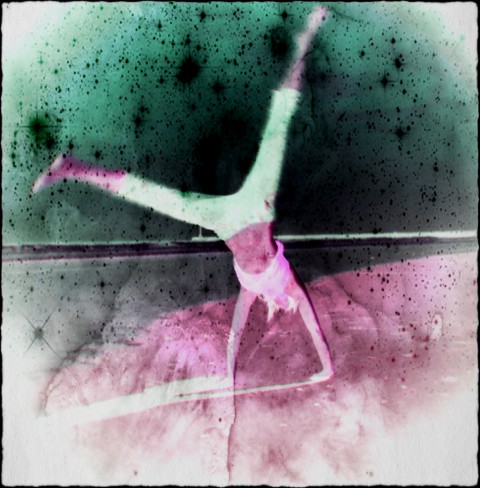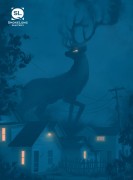Tomorrow Helen will be the first woman on the moon, and the first thing Helen will do on the moon, she says, is a cartwheel. She practices in our bedroom, one wall to the other, back and forth until she can do it with her eyes closed. I want my body to remember how it feels, she says, the touching down, her handprints embedded in our carpet like two white craters.
This is what the astronauts do, I’ve learned. They practice, which is another word for worry, and Helen worries about landings, return ones most of all. Helen can tell you in detail what happens when something goes wrong. First the warning lights come on, she explains, and then they don’t. The heat shields go next, then the tank, and the fins. If the parachutes fail the ship breaks against the water at thousands of miles per hour, metal and glass sinking to depths of a hundred meters, a hundred more, until you can’t see the surface, or the sun.
Helen tells me this is how Earth looks from the window, up there: a small ship in the black middle of the sea.
I close my eyes. I’m practicing, too. I think about shorelines and the things you might find on one, if you were looking: glass bottles, brown as beetles. Old watches, half their afternoons eroded, and batteries softer than pennies, silver enough to swallow, for years the fishermen reeling in catches that glow in the dark, luminescent, alkaline, flossy bones outlined in the palest green. Helen says nobody would bother looking for bodies but I don’t think mine would ever stop searching, a tidal knowledge in the way it turns toward her, even unconscious, even in the dark.
___________________
“Satellite” won third place in the inaugural SmokeLong Quarterly Award for Flash Fiction.



 The SmokeLong Grand Micro Contest (The Mikey) is now an annual competition celebrating and compensating the best micro fiction and nonfiction online.
The SmokeLong Grand Micro Contest (The Mikey) is now an annual competition celebrating and compensating the best micro fiction and nonfiction online.